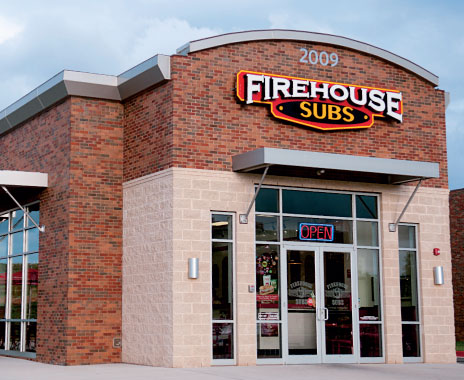From its controversial rollout to its wide-reaching impact on individual healthcare plans, the Affordable Care Act (ACA) has dominated recent headlines. What has received less attention, however, is the law’s impact on the foodservice industry.
In late January, National Retail Federation (NRF) vice president Neil Trautwein testified before a Congressional committee regarding the ACA. Like many others in the industry, Trautwein called into question the law’s 30-hour-per-week cutoff that separates full-time employees from part-time counterparts. “Many retail and restaurant employees do not fit neatly into full- and part-time categories, and compliance with the unprecedented levels of change under the ACA will be particularly challenging,” he said in his testimony.
“There’s no part of the industry that reported to us that thought that that definition worked,” says Scott DeFife, executive vice president of government affairs for the National Restaurant Association (NRA). “The restaurant industry is not a nine-to-five, five-days-a-week industry. In any one given work week, there are multiple restaurant work weeks.”
A recent survey by the NRA indicates 36 percent of multiunit operators are scheduling employees for fewer hours on average. The industry is adding more jobs, but multiunit operators are relying more on workers who clock less than 30 hours a week.
“You’re going to have to modify your scheduling practices,” says Don Fox, chief executive officer of Firehouse Subs.
The sandwich chain, which has more than 730 locations across the U.S. and Puerto Rico, is taking a proactive approach to healthcare by offering insurance to its hourly full-time employees.
“We had the benefit of the entire year to really get those systems down and in place to ensure our employees understood how it worked,” Fox says. “When we head into 2015, when it really counts, we feel we’ll be in a superior position now that we know all the variables.”
Initially, the ACA required companies to adhere to the new mandates beginning in 2014. But last July, the Internal Revenue Service announced a transition relief period, granting employers an additional year to comply. Some food retailers, like Firehouse Subs, are using the extension as an opportunity to test the new system on a trial basis. Others now find themselves faced with the same obstacles they were grappling with last year.
“Anything that you were thinking you had to do in the first or second quarter of 2013, you’ve got to dust off those plans and get ready now as if it’s going into place,” DeFife says. “If you only have two restaurants, you’re skirting the edge at somewhere between 50 and 100 employees. You might not have all the accounting, HR, and support that some of the other companies do.”
Under the ACA, an employer with 50 or more full-time employees must provide healthcare coverage for those full-time workers—a pool that now includes hourly employees who work 30 or more hours per week. If companies do not comply, they face a penalty.
“Being a small business and not having an HR department and all that, you’re basically out there doing it yourself,” says Ron Hines, co-owner of Cafe Carolina and Bakery based in Raleigh, North Carolina. The brand has four units and 65 employees, pushing it just beyond the 50-employee limit.
“All year long you’re thinking, How will I afford this, and how will I stay in business?” Hines says.
“The law that reforms healthcare coverage should not advantage larger employers to the detriment of smaller ones,” NRF’s Trautwein said in his testimony to Congress. He added that certain provisions of the ACA place a disproportionate burden on smaller employers that lack the resources to comply.
“The smaller ones, they’re really in the most difficult position because they’re getting nailed from all sides. They’re the ones most at risk and most vulnerable, ” says David Schnitt, CEO of IQ BackOffice, an accounting outsource and consulting firm that counts several Jamba Juice franchisees among its clients.
Schnitt says the financial burden of the ACA would force operators to raise their prices, which could in turn affect sales and even employee wages.
“I think a lot of owners will try to find a way to skirt under the 50-employee mark if they can; that’s human nature,” he says.
Schnitt offers a cautionary tale of a Wendy’s franchisee in Omaha, Nebraska, that planned to dodge the law by cutting its non-management workers to 28 hours per week. The move backfired in January with a rush of negative publicity, and Wendy’s corporate office was quick to distance itself from the franchisee’s decision.
But not all small brands are making attempts to sidestep the ACA. Some are absorbing the cost—be it through compliance or penalty.
“It’s close enough that you could almost not comply or make everyone part-time and get out of it, but it’s not our company culture; it’s not who we are,” Cafe Carolina’s Hines says, adding that beyond lost wages, fewer hours undermine productivity. “Your employees are now working two jobs. They’re less effective; they’re not happy with their hours, their earning power.”
In North Carolina, Hines’s restaurants were limited to two to three healthcare providers, none of which offered small-group rates. Hines says the cost would have been about $102,000. Across all locations, his business does roughly $7–$8 million in sales per year.
“It would have been a huge financial hit to us,” he says. “But the way it turned out, the individuals spoke, and the interest level was so low that if we were in the penalty phase of the Affordable Care Act, we would have paid the penalty.”
Hines hopes providers will begin to offer small-group plans and restrictions on employer contributions will become more flexible. For now, he and his business partners subsidize individual plans for the few employees interested in coverage.
With the goal of easing the financial strain on restaurant operators, the NRA is pressing legislators to change the 30-hour workweek definition. The association has also attended tradeshows, held forums, and created an online tool kit to help members better understand the law and their options.
Doubting any legislative action, Schnitt says he advises his clients and other retailers to look for ways to cut costs while seeking experts like IQ BackOffice to better understand their options.
Without changes to the ACA, reduced premiums can act as a potential life raft for struggling businesses, Firehouse Subs’ Fox says.
“There is no affordable care in the Affordable Care Act,” he says. “Assuming that the law stays as is and isn’t repealed, then our main avenue for trying to get some efficiency out of this is getting the insurance reduced.”












